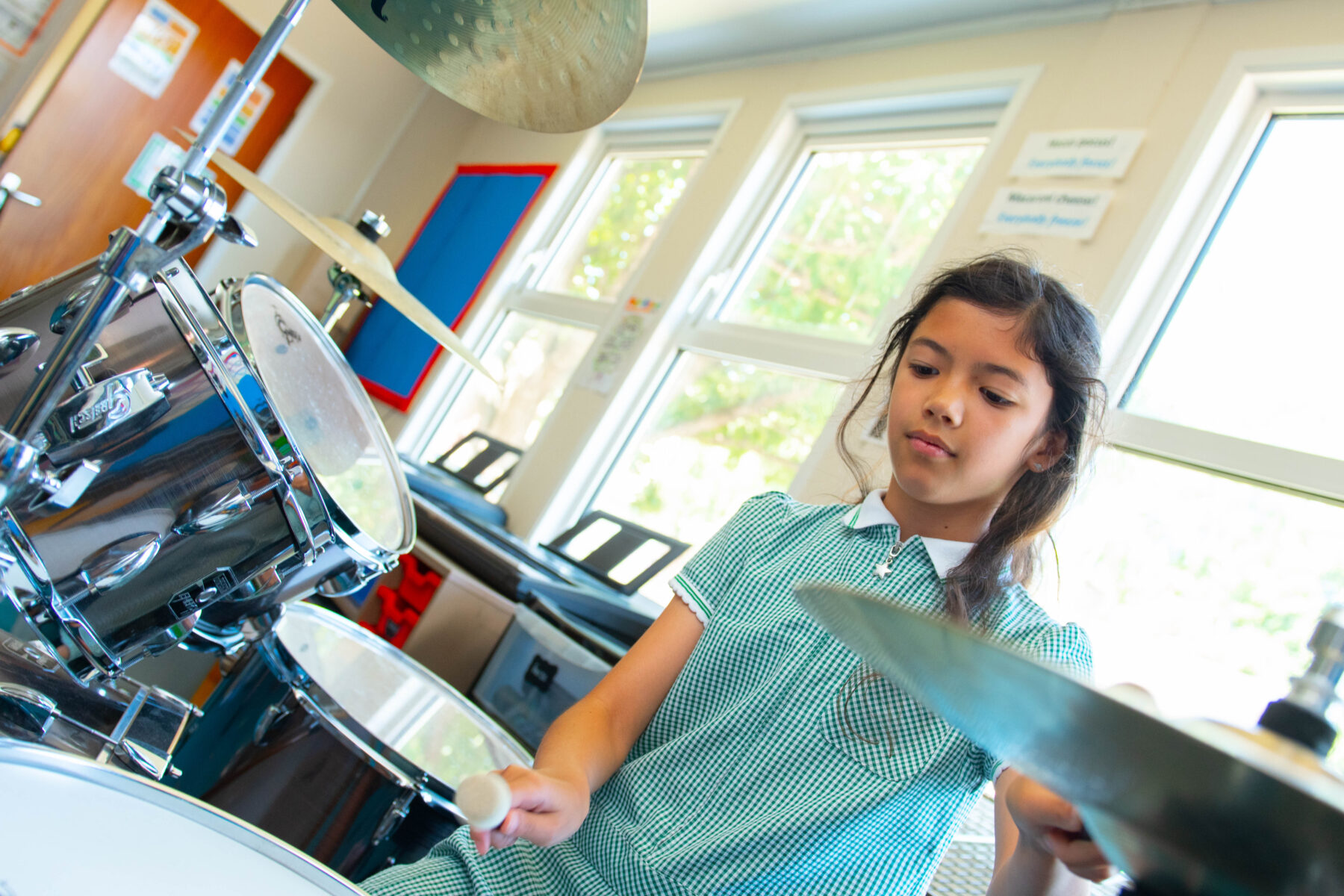
Introduction.
This is a statement of the aims, principles and strategies for the teaching and learning of Music at Christ Church CE (VC) Primary School
As stated in the National Plan for Music Education (published in June 2022);
‘Down the generations, music has enriched our national identity, our community and our economy. Music education is essential to safeguarding and extending the musical life of our country for generations to come.
Excellent music education opens opportunities, but it is not simply a means to an end: it is also an end in itself. It gives children and young people an opportunity to express themselves, to explore their creativity, to work hard at something, persevere and shine. These experiences and achievements stay with them and shape their lives.
That is why music is an essential part of a broad and ambitious curriculum for all pupils.’
Music Intent(Learn).
Music educator Zoltan Kodály wrote that ‘Music is for everyone’; this philosophy underpins our ethos for music at Christ Church School.
Our intention is to support the children in developing musicianship in a holistic way, through high quality, varied and exciting practical musical experiences. We intend to provide opportunities for the children to:
We aim to ensure that the many benefits of a rounded Music education are exploited, enabling children to develop transferable skills such as teamwork, communication, resilience, and respect for self, peers and other cultures and traditions. We are committed to ensuring that Music is used to support wellbeing and self-expression and to encouraging the children to find Music that excites, moves and inspires them.
Above all, we aim to ensure that all children believe, as we do whole-heartedly, that they have the potential to be musicians and that we are equipping them with the skills, experiences and understanding that they need in order to develop a love of, and be active participants in Music making and appreciation.
Implementation(Grow).
Our bespoke Music curriculum focuses on developing the children’s musicianship skills by using the Kodály methodology as the ground work for practical activities and developing the children’s understanding of music.
Music in FS focuses on developing children’s unconscious experiences of beat, pitch and rhythm, experiencing them through actions and movement, and drawing on the guidance in ‘Musical Development Matters’ by Nicola Burke.
As the children progress through KS1 and 2, the children are gradually introduced to each new musical concept subconsciously first, through singing and games, before the concept is ‘made conscious’ in a visual way and then practiced thoroughly. The practice phase progresses through reading, writing and creative activities that enable the children to become fluent in using the new pitch or rhythm through fun and engaging practical activities.
Singing is used in every lesson, with instrumental work built in alongside. 1st Access provision on the recorder and ukulele is woven into our curriculum in a way that works hand in hand with the children’s developing musicianship skills. As they become increasingly proficient, children will explore layers in music through part-work such as ostinatos, canon and harmony, facilitating opportunities for them to further develop their listening skills and musical understanding, as well as their concentration and memory.
Children listen to and perform music from a broad range of styles and traditions, and are given the skills to explore, improvise and compose using the concepts that they have learnt within their musicianship training as well as the stylistic features of music that they hear.
Impact(Flourish).
Throughout their time at Christ Church, children will follow a progressive Music curriculum that enables them to build on their prior learning and experiences at all stages, whilst equipping them with the skills, knowledge and understanding that will enable them to continue on their musical journey. The children will have the opportunity to learn instruments through 1st Access tuition, and to pursue this further through small group or individual tuition with a visiting instrumental teacher if they wish. They should be confident performers, who enjoy singing and playing instruments together. They will have created music that demonstrates their understanding of the musical concepts, elements, and styles that they have studied whilst showcasing their own individual creativity. They will be able to talk about the music that they hear, showing an appreciation and respect for different styles and traditions, while being able to express and justify their own preferences. They will have a good understanding of the ways in which Music can be notated. Above all, they will demonstrate excitement and enjoyment of music that will be evident in all musical activities that take place across the school.
The subject leader will monitor the impact of the Music curriculum through;
The school runs its own orchestra and choirs which participate in competitions and support the school and community at a range of local events. Our music clubs include:
We have a team of visiting instrumental teachers that offer individual and small group tuition on a wide range of instruments. Details of these teachers can be found by clicking on this link. If your child would like lessons, please contact the relevant teacher directly. It is expected that all who receive instrumental or vocal tuition I school will participate in relevant extra-curricular ensembles.
We offer a range of extra-curricular clubs. Our school choir, ‘C.C. Singers’ rehearse all year, as does our instrumental ensemble, ‘C.C. Jam’. Additional opportunities are set up to meet the needs and interests of our pupils.
We provide many opportunities for the children to perform, including at large scale, whole school concerts that take place each year at the Wiltshire Music Centre. We also hold regular tea time concerts at school in order to give the children the opportunity to perform as soloists in a more informal setting.
‘C.C. Singers’ – Thursday 12.15 – 12.45. Open to all in Years 3 – 6
‘C.C. Jam’ – Wednesday 12.15 – 12.45. Open to instrumentalists of any ability (including complete beginners) in Years 2 – 6